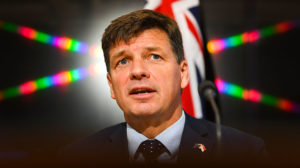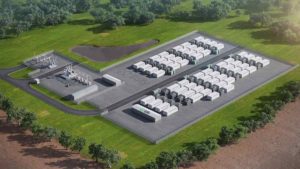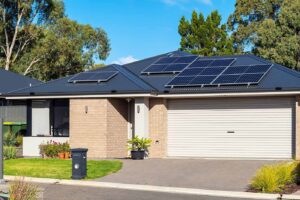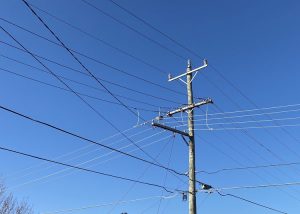The COAG Energy Council has agreed on the formation of an “Energy Coordination Mechanism” bringing together government and industry leaders for weekly meetings to coordinate a national response to the impact of COVID-19 on energy supplies.
In a meeting held via teleconference, federal and state energy ministers agreed that it was necessary to maintain regular engagement and communication between energy planners and the big energy companies to maintain secure energy supplies and that the right support is being provided to homes and businesses facing financial pressures.
The formation of a “Energy Coordination Mechanism” mirrors that of the “National Coordination Mechanism”, which was established to manage the health system response to COVID-19 across both federal and state governments.
“National leadership is crucial. As is close cooperation and coordination. We come together in that spirit today,” Federal energy minister Angus Taylor said in opening remarks to the meeting.
“It is critical that we all work together to keep the energy sector stable so that it can deliver essential services to the Australian community. The Australian people expect no less.”
“The energy sector is good at responding to disruptions and has well established emergency management plans. However, COVID-19 brings unprecedented challenges, and governments and industry need to work together to respond effectively.”
As detailed in RenewEconomy’s preview to the COAG energy council meeting, ministers were set to consider the necessary response to COVID-19, including a stocktake of fuel reserves and a discussion of the coordination of ministerial powers to ensure the security of the energy system is maintained.
The energy system, which has already been facing challenges to control both prices and reliability within acceptable levels, now has the added challenge of a workforce now potentially impacted by the outbreak of coronavirus.
“While we are dealing with the immediate and emerging issues arising from COVID 19 it is also critically important to keep energy prices down and continue to maintain reliability in the system ahead of next summer,” the communique says.
“That is why Ministers agreed to a number of interim measures to ensure the affordability, reliability and security of the grid for consumers in the National Electricity Market.”
The announcement of the new Energy Coordination Mechanism was welcomed by Energy Consumers Australia, which said it was ready to support a cooperative approach to maintaining energy system security and to protect consumers.
“The National Energy Coordination Mechanism announced today can play a critical role in not just securing continuity of energy supplies, but also ensuring that consumers are getting the bill relief they need,” Energy Consumers Australia CEO Lynne Gallagher said.
“We will support the response by engaging with consumers and the community to monitor outcomes and bring issues to the attention of governments and industry.”
In the communique issued following the meeting, energy ministers called on all energy market participants to identify support measures for customers being impacted by COVID-19, particularly those facing financial hardship.
“The Coronavirus is presenting challenges across the economy and it is important that energy retailers have plans in place to help their customers and ensure they get the information, services and support they need,” Taylor said in a statement following the meeting.
“At the same time, governments and industry are working closely together to make sure there is no disruption to energy supplies and that the sector is following the best practice approaches to infection control to keep their workforce safe.”
“Ministers also agreed to work together to coordinate any potential emergency responses, and to work with industry to remove barriers that might be making it more difficult for the industry to respond,” Taylor added.
At its last meeting, the COAG Energy Council requested that the Energy Security Board undertake a review of the reliability standard for the electricity market, which sets a goal for the maximum amount of unserved demand (customers going without power) in the National Electricity Market.
Having received the findings from this review, energy ministers have agreed to implement new measures to strengthen the standard, to limit “unserved energy to no more than 0.0006% in any region in any year”.
New “triggers” under the Retailer Reliability Obligation will be created to meet the stricter standard as well as a new “out-of-market” capacity reserve that will be used to ensure the tighter standard is met and will be reconsidered as part of a wider review of the Retailer Reliability Obligation by mid 2023.
It is a substantial strengthening of the reliability standard, which previously set a benchmark of 0.002% unserved energy across the entire national electricity market over a year.
The reliability standard has not been breached since 2009 when drought impacted power supplies, but ministers are sensitive to growing consumer angst over disconnections and the emerging risk of outages during high demand periods like heatwaves.
Ministers also requested that new changes to the National Electricity Rules be developed, that would assist in the implementation of dedicated Renewable Energy Zones. Progress welcomed by the Clean Energy Council.
COAG Energy Council understandably focused on COVID-19 response. But good to see progress with Renewable Energy Zones, actioning ISP & referring COGATI to post-2025 market design process. All sensible. https://t.co/5ZJTH4MlV3
— Kane Thornton (@kanethornton) March 20, 2020
Energy ministers also endorsed a set of rule changes designed to support the implementation of AEMO’s Integrated System Plan as well as legislative changes to provide greater transparency in gas markets that the energy council hopes will help reduce domestic gas prices further.








